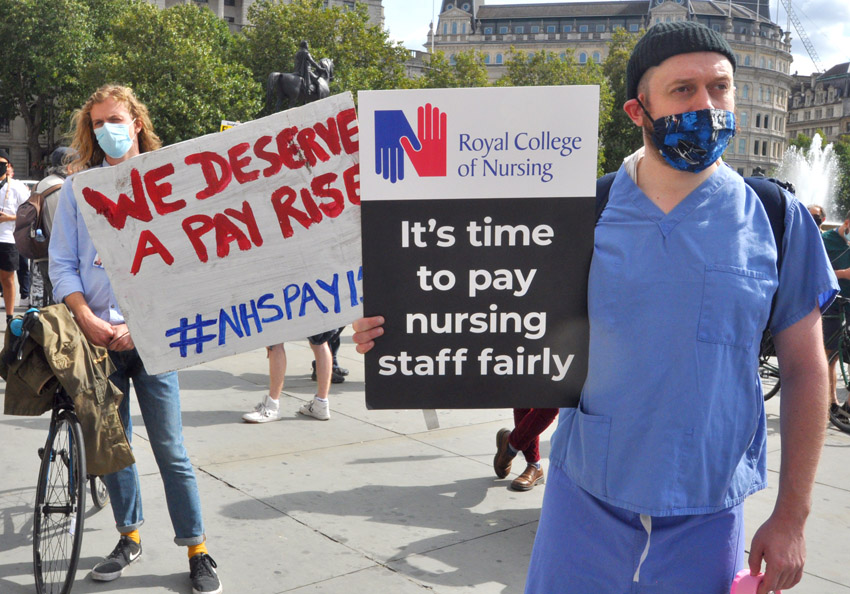THE National Insurance (NI) rise is leaving experienced nurses worse off, even with the proposed pay increase, says the Royal College of Nursing.
Responding to the National Insurance rise yesterday, RCN Director for England, Patricia Marquis, said: ‘Today’s national insurance rise is part of a concerning financial outlook set to leave an experienced nurse £935 per year worse off in real terms even after the government’s proposed 3% NHS pay award.
‘Nursing staff are already feeling the financial strain with the recent increase in petrol prices, heating bills and the cost of living crisis.
‘They feel they have given a huge amount throughout the pandemic and are now being asked to pay for the recovery of the very health and care system they kept running for the last two years.
‘The efforts of the pandemic will leave a lasting mark on those that led the response with many saying they are exhausted and that there is not enough staff for them to do their jobs properly. This is the reality of the tens of thousands of nursing vacancies across health and care.
‘Ministers now have a simple choice to make – give nursing staff the pay rise they deserve that does not leave them worse off in real terms, or risk an exodus of the very staff they need for the long-term recovery of safe patient care. Not acting now will make that recovery take even longer.’
A nurse at the top of Band 5 currently on an annual salary of £31,534 will be £935 worse off in real terms after the increase in National Insurance contributions and proposed pay rise of 3% with annual inflation forecast at 8% in 2022.
Meanwhile Health Secretary, Sajid Javid has defended the hike to National Insurance (NI), saying it is a choice between taxing or borrowing.
Javid’s rise yesterday is being condemned for hitting working people hard and intensifying the current cost of living crisis.
His line is that it would be ‘morally wrong’ to expect future generations to pay for the funding that is needed now.
‘The choice for us as a country is we either put that money in ourselves now, and if we don’t do it ourselves, we will have to borrow it,’ he said.
‘And that is mortgaging the future of our children and our grandchildren.’
Javid added: ‘Why should our children pay for our healthcare and our adult social care? They are going to have enough challenges as they grow older.’
However the leader of the Liberal Democrats, Sir Ed Davey, answered him saying increasing NI was an unfair way of raising the cash needed for health and social care.
‘It doesn’t tax the unearned income of very wealthy people, it doesn’t tax the income of landlords,’ he said.
‘It puts all the burden on working people – that is wrong.’
The tax hike will see employees, employers and the self-employed all pay 1.25p more in the pound on NI for a year.
Then the extra tax will be collected as a new Health and Social Care Levy from April 2023.
The government said the changes would raise £12bn a year, which would initially go towards easing pressure on the NHS after Covid.
Labour’s shadow chief secretary to the Treasury, Pat McFadden, said: ‘No other major economy is raising taxes on working people in the midst of this cost of living crisis.’
He said the rise would ‘reduce living standards and harm our economy’ at a time when ‘working families feel more insecure than ever’.
